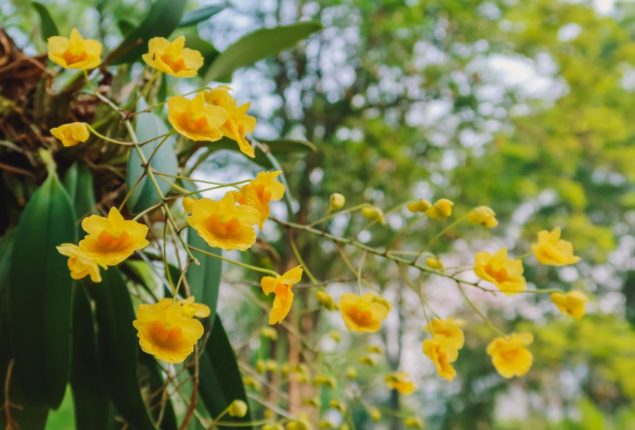Fossil Fuel lobbying presence quadruples at COP28 climate talks
The number of fossil fuel lobbyists at COP28 increased. Around 2,400 individuals...

God Flower fades: Climate change threatens Tsou Tribe’s vital orchid
The ever-worsening effects of climate change have driven the Dendrobium orchid, also known as the golden grass orchid, or “God Flower,” to the brink of extinction among the indigenous Tsou people living in the mountains of Alishan, Taiwan.
The Tsou people consider the blossom to be a doorway to the gods.
“My tribe has to have the God Flower for our ceremonies. Otherwise, God won’t be able to find us,” says tribal elder Gao Desheng.
According to the BBC, the God Flower was formerly widely distributed outside Tsou homes, but now days, finding one requires venturing further into the steep forests and even climbing trees.
The Tsou attribute the God Flower’s limited availability to climate change.
For the buds of this flower to open in the spring, temperatures below 12°C are necessary. Flowers often grow between 800 and 1,800 meters above sea level in warm, temperate settings.
According to environmental organization Greenpeace, global warming will cause an average November temperature increase from 12–14°C to 14–16°C by 2050 since lowest temperatures in the fall and winter have risen during the previous ten years.
Typhoons, rising temperatures, and recurrent droughts are all present in Taiwan, which is also the tribe’s primary source of water.
Their recent failure to make landfall has resulted in crop failure, which has negatively impacted Tsou customs and way of life as well as seriously harmed the island’s water supply.
In the meantime, Gao thinks the Tsou people’s ceremonies lack a replacement for the God Flower, which they are unable to find a solution for.
Iafafeoi, the war deity of the Tsou people, is thought to guarantee young people’s safe return from combat.
“It is said that the God Flower surrounds the habitat of this deity,” A Xiao-Ming, who is in his 40s, explained. “These flowers are placed on the roofs of Kuba (ceremonial centre for the village), signifying the presence of the divine.”
The God Flower, so the old wisdom goes, cannot be artificially grown. Before crucial ceremonies can start in the early morning, it needs to be located and picked in the wild before daylight.
Out of the 23 million indigenous people in Taiwan, the Tsou tribe, one of 16 in number, is mainly found in the Alishan mountains.
Gao also voiced worries about his tribe’s future, claiming that it is dependent on government assistance.
He feels that politicians are failing to sufficiently address the substantial effects of climate change on Tsou’s way of life, even in the midst of a presidential race.
Even though Americans are very concerned about climate change, Greenpeace criticized the presidential contenders, dubbing them “climate snails” since their planned objectives for renewable energy are not enough to achieve net-zero emissions.
Catch all the International News, Breaking News Event and Latest News Updates on The BOL News
Download The BOL News App to get the Daily News Update & Follow us on Google News.